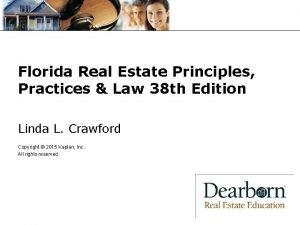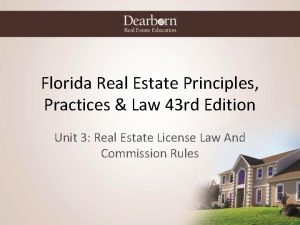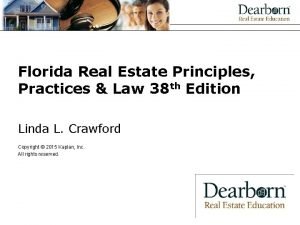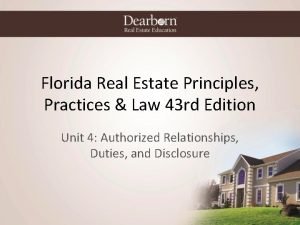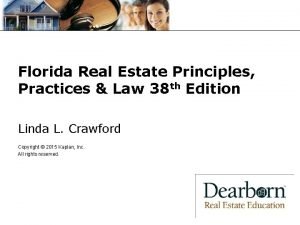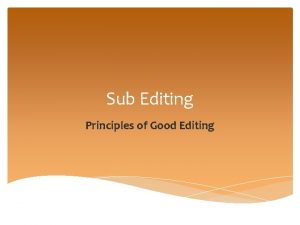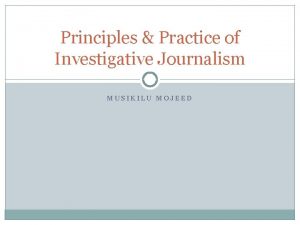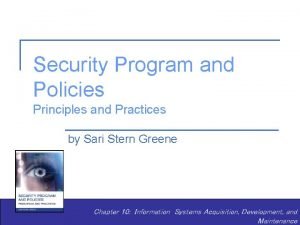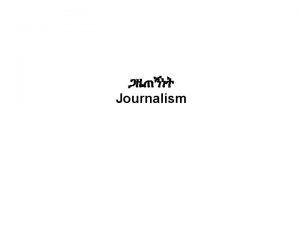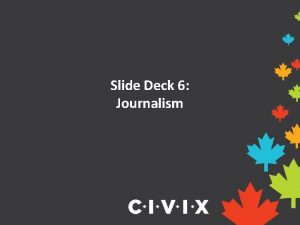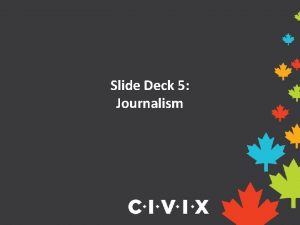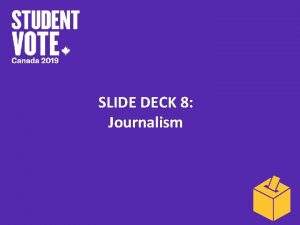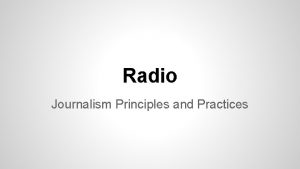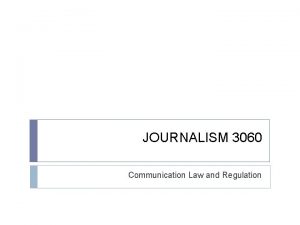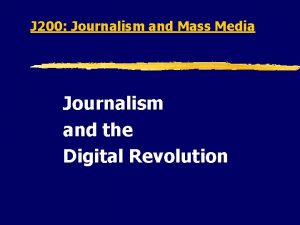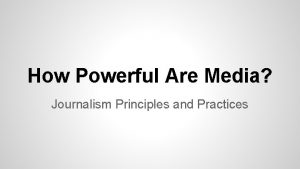Law and Regulation Journalism Principles and Practices Where












- Slides: 12

Law and Regulation Journalism Principles and Practices

Where do Laws Come From? ● Constitutional - Constitution created legislatures, let them make laws ● Statutory - Laws made by those legislatures ● Administrative - Legislatures set up agencies ● Common Law - Based on tradition, previous decisions ● Common Law gives us the idea of precedent

Interpreting Constitution ● It’s a brief document, and cannot cover everything ● It becomes outdated ● Supreme Court is final arbiter ● Supreme Court must to some extent go beyond boundaries of Constitution

Philosophies of Interpreting Constitution ● Strict construction ● Original intent ● Judicial activism or broad construction o o Example: Earl Warren Brown v. Board of Education, brought in sociologists

Constitution and Expression Covered in earlier lecture, but to review: We do not protect communication that. . . ● Does not communicate an idea ● Is likely to cause immediate harm ● Creates immediate and unavoidable hazard

Laws of Most Relevance to Journalists ● Libel ● Privacy ● Copyright

Libel Elements of libel. . . ● Damage ● ID ● Publication ● Fault

Libel, Continued Defenses against libel. . . ● Truth ● Privilege ● Fair Comment ● Times v. Sullivan

Times v. Sullivan Plaintiff must prove, in addition to other libel elements. . . ● News medium knew it was wrong ● Used anyway to cause harm ● Pro: Enables vigorous scrutiny of public figures ● Con: Makes ignorance a defense

Privacy Types of Privacy Torts. . . ● Misappropriation ● Embarrassment ● False light ● Intrusion

Defenses Against Privacy Charge ● Consent ● Newsworthiness Pro: Allows journalists to freely cover news Con: Allows person invading privacy to make the rules

Copyright Fair Use exceptions for journalists. . . ● Purpose and character ● Nature of work ● Amount or significance ● Impact on original
 Literary journalism vs traditional journalism
Literary journalism vs traditional journalism Literary journalism vs traditional journalism
Literary journalism vs traditional journalism Florida real estate principles practices & law
Florida real estate principles practices & law Florida real estate principles practices & law 43rd edition
Florida real estate principles practices & law 43rd edition Florida real estate principles practices & law
Florida real estate principles practices & law Florida real estate principles practices
Florida real estate principles practices Florida real estate principles practices
Florida real estate principles practices Newton's first law and second law and third law
Newton's first law and second law and third law Newton's first law and second law and third law
Newton's first law and second law and third law Sub editing
Sub editing Principles of investigative journalism
Principles of investigative journalism Journalism translation
Journalism translation Security program and policies principles and practices
Security program and policies principles and practices


